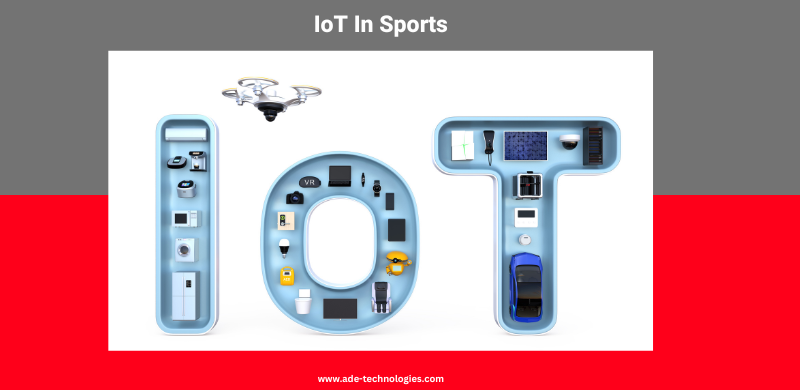In the dynamic realm of real estate, where time is money and precision is paramount, technology is stepping up its game. Among the transformative forces driving change, Artificial Intelligence (AI) takes center stage. Let’s dive into the fascinating world of how AI-driven analytics is reshaping mobile app strategies in the real estate industry.
Advantages of AI-driven Analytics in Real Estate Mobile Apps
AI-driven analytics in real estate mobile apps offer a wide range of benefits, enhancing the efficiency, accuracy, and user experience for both buyers and sellers. Here are several advantages:
-
Personalized Recommendations:
AI algorithms analyze user behavior, preferences, and historical data to provide personalized property recommendations. This helps users find properties that match their specific needs and preferences, streamlining the search process.
-
Predictive Analytics:
AI can analyze historical data to predict future market trends, enabling users to make informed decisions about buying, selling, or investing in real estate. Predictive analytics can assist in identifying potential opportunities and risks.
-
Price Estimation and Optimization:
AI algorithms can analyze various factors such as location, property features, and market trends to provide accurate property valuations. This helps sellers set competitive prices and allows buyers to make more informed decisions.
-
Market Trend Analysis:
AI-driven analytics can process large datasets to identify market trends and patterns, helping real estate professionals and investors stay ahead of market fluctuations. This information is crucial for making strategic decisions.
-
Enhanced Customer Experience:
AI-powered chatbots can provide instant responses to user queries, schedule property visits, and offer guidance on the buying or selling process. This improves customer service and engagement, providing users with a more satisfying experience.
-
Workflow Automation:
AI can automate repetitive tasks, such as document verification, paperwork processing, and appointment scheduling. This streamlines workflows for real estate professionals, reducing administrative burdens and increasing overall efficiency.
-
Fraud Detection and Security:
AI algorithms can detect anomalies and patterns associated with fraudulent activities, such as fake listings or scams. This enhances the security of transactions and protects users from potential risks.
-
Image and Video Analysis:
AI can analyze property images and videos to extract valuable information, such as property features and aesthetics. This visual data enhances property listings, providing users with a more comprehensive view of potential homes.
-
User Behavior Analysis:
AI can track user interactions within the app, providing valuable insights into user preferences and behaviors. This information can be used to optimize the app’s features and content, improving the overall user experience.
-
Reduced Time and Costs:
By automating tasks, providing accurate valuations, and streamlining processes, AI-driven analytics contribute to significant time and cost savings for both users and real estate professionals.
-
Data-Driven Decision Making:
Real-time analytics empower users and professionals to make data-driven decisions. This ensures that decisions are based on the latest market information and trends.
-
Inventory Management:
AI can assist in managing and analyzing property inventories, helping real estate professionals optimize their listings and better understand market demand.
Obstacles and Considerations for AI in Real Estate Mobile Apps
Using AI in real estate mobile apps is like having a smart helper. It can do lots of cool things, but there are also some challenges we need to think about. Let’s talk about these challenges in a simple way:
-
Not Everyone Understands AI:
- Obstacle: Some people may not know how AI works or what it does.
- Consideration: We should explain AI features in the app in a simple way, so everyone can understand.
-
Mistakes Can Happen:
- Obstacle: Sometimes, AI might make mistakes in understanding what people want.
- Consideration: We need to keep an eye on AI and correct any mistakes. Users should know that AI is not perfect.
-
Privacy Concerns:
- Obstacle: AI needs data to learn, but some people worry about their personal information being used.
- Consideration: We must make sure to keep user data safe and let people know how their information is being used.
-
Technical Issues:
- Obstacle AI needs a good internet connection and sometimes might not work if there are technical problems.
- Consideration: Users should be aware of this and know what to do if something isn’t working right.
-
Cost of Technology:
- Obstacle: Developing and using AI can be expensive.
- Consideration: We need to find a balance between offering useful AI features and keeping the app affordable for everyone.
-
Dependence on Data:
- Obstacle: AI needs lots of data to learn and make good suggestions.
- Consideration: We should find ways to use data wisely without taking too much from users or making them uncomfortable.
-
Lack of Human Touch:
- Obstacle: AI can be very smart, but it doesn’t have the warmth and understanding of humans.
- Consideration: We should make sure to keep a balance between AI assistance and the human touch in real estate dealings.
-
Keeping Information Up to Date:
- Obstacle: Real estate is always changing, and AI needs to keep up with the latest information.
- Consideration: We must make sure our AI is regularly updated to provide accurate and current details.
-
Not Everyone Trusts Technology:
- Obstacle: Some people might not trust machines to help them with important decisions.
- Consideration: We should show how AI can be helpful and build trust over time by being reliable.
-
Making Sure AI Helps Everyone:
- Obstacle: We need to make sure that AI benefits everyone, including those who may not be as familiar with technology.
- Consideration: The app should be designed so that everyone, regardless of their tech skills, can easily use and benefit from the AI features.
Common Practices for Implementing AI in Real Estate Mobile Apps
Implementing AI in real estate mobile apps can be a game-changer, but it’s important to follow best practices to ensure a smooth integration and provide a positive user experience. Here are some guidelines:
-
Clearly Define Objectives:
- Clearly outline the goals you want to achieve with AI in your real estate app. Whether it’s improving user recommendations, streamlining processes, or enhancing customer service, having well-defined objectives is crucial.
-
Understand User Needs:
- Understand the needs and preferences of your app users. Tailor AI features to address specific pain points in the real estate journey, such as personalized property recommendations, price estimation, or efficient search functionalities.
-
Start Small and Scale:
- Begin with a small, manageable AI implementation rather than trying to do everything at once. This allows you to test and refine the technology while minimizing potential disruptions.
-
User-Friendly Design:
- Ensure that AI features are seamlessly integrated into the app’s user interface. The design should be intuitive, and AI-driven elements should enhance, not complicate, the user experience.
-
Transparency and Education:
- Clearly communicate how AI is being used in the app. Provide explanations and educational content to help users understand the benefits of AI features and how they contribute to their real estate experience.
-
Data Privacy and Security:
- Prioritize the security and privacy of user data. Clearly outline your data handling practices, obtain user consent for data usage, and comply with data protection regulations to build trust with users.
-
Reliable Data Sources:
- Use reliable and diverse data sources to train AI models. High-quality, up-to-date data ensures that the AI system makes accurate predictions and recommendations.
-
Continuous Monitoring and Improvement:
- Implement systems to continuously monitor the performance of AI algorithms. Regularly update and improve the models based on user feedback and changes in the real estate market.
-
Human-in-the-Loop Approach:
- Incorporate a human-in-the-loop approach, especially for critical decision-making processes. Human oversight ensures that AI decisions align with ethical standards and helps address situations where AI may fall short.
-
Cross-Functional Collaboration:
- Encourage collaboration between technical and non-technical teams. Real estate professionals, UX designers, and AI engineers should work together to ensure that AI aligns with the needs and expectations of all stakeholders.
-
Scalability and Flexibility:
- Design AI systems with scalability in mind. The infrastructure should be able to handle increased usage, and the AI models should be adaptable to changes in user behavior and market dynamics.
-
A/B Testing:
- Implement A/B testing to compare the performance of AI-driven features against traditional methods. This helps validate the impact of AI on user engagement, conversion rates, and overall satisfaction.
-
Accessibility Considerations:
- Ensure that AI features are accessible to all users, including those with disabilities. Design the app to be inclusive, with features like voice commands or screen readers, making it usable by a diverse audience.
-
Compliance with Regulations:
- Stay informed about data protection and privacy regulations in the real estate industry. Ensure that your AI implementation complies with relevant laws and standards to avoid legal complications.
In Conclusion: A Bright Future Fueled by AI
In conclusion, AI-driven analytics isn’t merely a buzzworthy trend; it’s a transformative force reshaping the landscape of real estate mobile apps. As these apps evolve, driven by the insights derived from smart analytics, users can anticipate more personalized, efficient, and insightful experiences in their property journeys. The age of AI in real estate has dawned, and the future looks not just promising but exceptionally bright. Buckle up for a revolution in the way we navigate the world of real estate—powered by the brilliance of AI.






